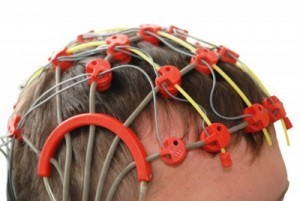An online ‘seizure diary’ has been launched by a national charity to help teenagers and young people who have epilepsy.
 Around one in four autistic people begin to have epileptic seizures during puberty. The exact reason is unknown, but it is thought to be due to hormonal changes in the body.
Around one in four autistic people begin to have epileptic seizures during puberty. The exact reason is unknown, but it is thought to be due to hormonal changes in the body.
Sufferers or their parents can access the password-protected diary, which has been produced by the National Centre for Young People with Epilepsy (NCYPE). Free to use, it enables young people and families to record seizures and how they affect the sufferer.
Gill Gallagher, a spokesperson for the NCYPE, said the organization hoped the diary would help users take control of their condition.
Epilepsy is a tendency to have recurrent seizures that are caused by a sudden burst of excess electrical activity in the brain. This results in messages to the rest of the body becoming confused.
Around 60,000 under-18s across the UK have epilepsy, making it the most common serious childhood neurological condition. Around one in 10 (6,000) of these will suffer from severe communication, learning or behaviour problems because of their epilepsy.
Sometimes seizures are noticeable when accompanied by convulsions, but are often not detected in the case of subclinical seizures. Signs of the latter include exhibiting behaviour problems such as aggression, severe tantrums and self-injuring; making little or no academic gains after doing well during childhood and the pre-teen years; and losing some behavioural or cognitive gains.
Parents suspecting seizures in their autistic child should contact their child’s doctor for an epilepsy examination (pictured). The evaluation often consists of an EEG test, which measures electrical impulses in the brain, and imaging studies of the brain in the form of an MRI scan.
There is also a blood test to measure red and white blood cell counts, blood sugar, blood calcium and electrolyte levels, plus an evaluation of liver and kidney function. The blood test helps rule out the presence of other illnesses.
The NCYPE website can be personalized with a profile picture and other details, and features links to Facebook and Twitter. It also contains facts and information about the condition.
The online diary’s launch coincides with the release of All About Me, a hard-copy diary partly funded by the Roald Dahl’s Marvellous Children’s Charity and available free. Parents or young people who would like a copy should email: info@ncype.org.uk
For more information on the online epilepsy diary, click here
Published: 19 July 2011















